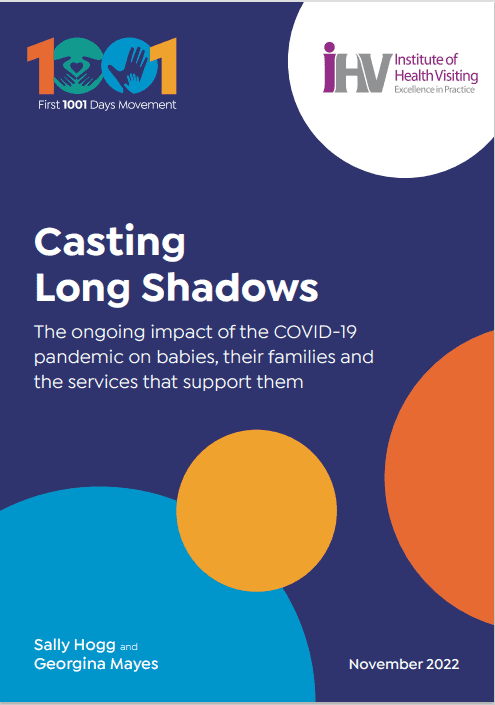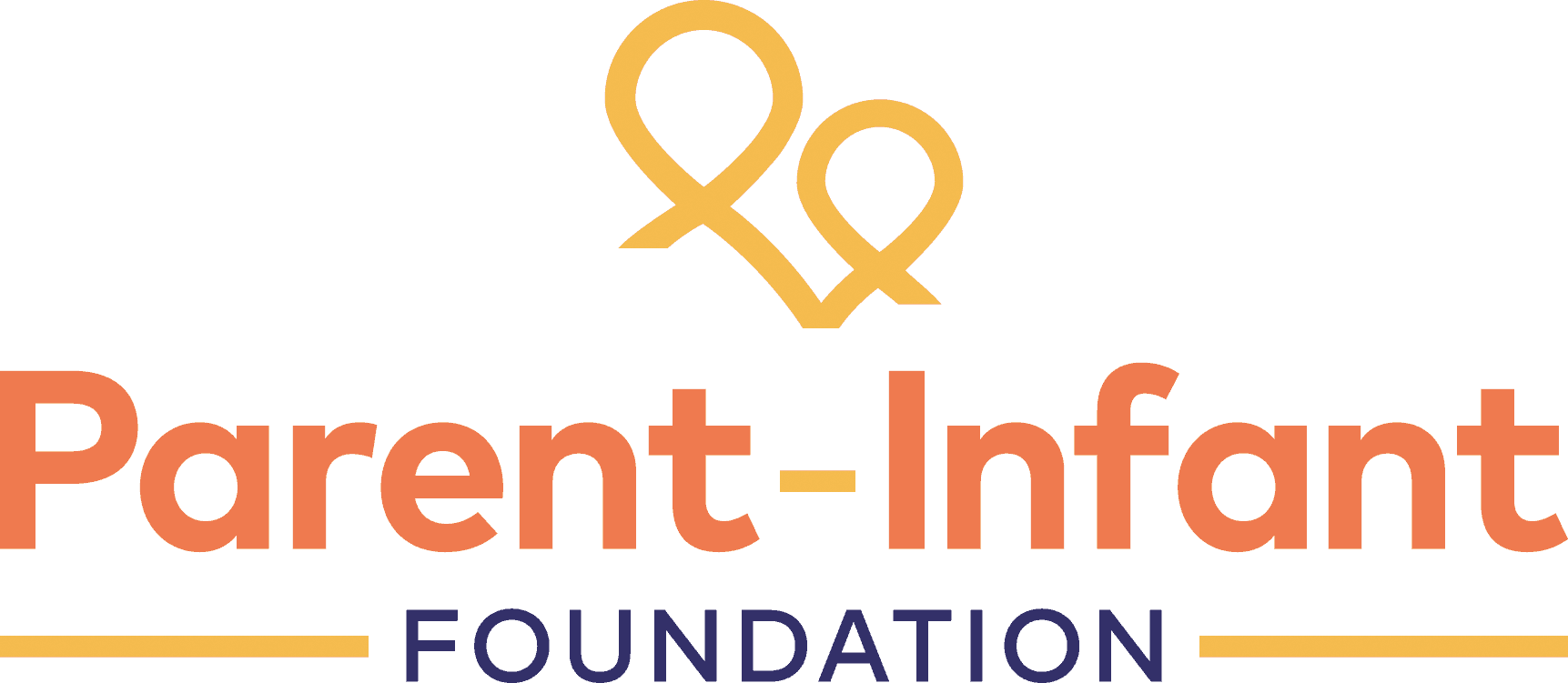New First 1001 Days report highlights the ongoing impact for babies born during the COVID pandemic
23 November 2022

A new report released by the First 1001 Days Movement and Institute of Health Visiting shows an alarming 95% of professionals questioned say they are seeing an ongoing negative impact on babies’ and young children’s social skills due to the COVID pandemic.
The report, ‘Casting Long Shadows: The ongoing impact of the COVID-19 pandemic on babies, their families and the services that support them.’ reveals worrying new statistics about babies and young children born or growing up through the COVID pandemic, highlighting how many young children are more at risk of harm, have delayed social skills, and have been affected by poor parental mental health. It calls for governments to act as a matter of urgency to reverse this decline and tackle inequalities for babies and children.
Findings for the report were synthesised from reviewing reports, research and national data as well as analysis from a national survey of 555 professionals and volunteers who work with babies and their families in health visiting, mental health, maternity, early education, and other services. The findings are compelling and are consistent with a whole raft of studies from multiple sources across the children’s sector, indicating that the wide-reaching impacts of the pandemic are far from over for our youngest members of society.
For babies’ development and wellbeing, the key stats show that:
● 94.8% of professionals say that the pandemic has an ongoing negative or very negative impact on the personal and social skills of children who were living in the pandemic, and 92.4% say the same for communication, speech, and language skills and for emotional wellbeing and development
● Almost half (42.7%) of respondents stated that “many” babies they work with are affected by parental anxiety, stress, or depression due to the pandemic, which is affecting bonding and responsive care.
● More than 4 in 10 (44.1%) of respondents said that “many” of the babies they work with are currently affected by increased exposure to domestic conflict, child abuse and neglect. This is higher than the proportion of professionals making the same observation in summer 2020 (29%).(Data from Working for Babies report)
● 4 in 10 (40.4%) survey respondents reported “many” babies they worked with had been affected by the loss of family income or increased risk of food poverty.
The stats also highlight how services are responding:
● Services have not returned to normal, and this could impact future generations – Whilst there has been innovation in service provision, nearly 6 in 10 respondents (59.5%) who reported that their service was operating differently, told us that the changes were not beneficial for families.
● Services are in ‘crisis’ – The pandemic exacerbated existing strains on services. A significant number of survey respondents raised issues relating to low staffing numbers and poor staff wellbeing, with some professionals talking about services being in “crisis”.
● Majority of respondents (90.5% in England) did not feel that national or local governments had taken sufficient action to ensure that babies under two and their families receive the support they need to recover from the impact of the pandemic.
There has been widespread recognition of the lasting effects of the pandemic on society’s youngest members. Recent reports from Ofsted and the BBC’s Shared Data Unit also show the importance of early relationships, education and skills, and the Government’s own data also presents an increase in speech and language delays.
With so much compelling evidence, The First 1001 Days Movement and Institute of Health Visiting are calling for the Government to make this a cross-Government priority and appoint a cabinet member to drive this forward and act now to mitigate the impact of the pandemic on future generations.
Keith Reed, CEO of Parent-Infant Foundation and secretariat of the First 1001 Days Movement said:
“The pandemic and its impacts are not over. It is having a lasting effect on many thousands of babies’ and children’s wellbeing and development, and on the ability of services to meet their needs.
“Changes implemented during the pandemic, such as virtual health visits, in many instances have been retained, and playgroups that closed haven’t reopened. There are some Government initiatives underway such as Start for Life and Family Hubs, but the relevant programmes are not joined up and there is not enough urgency. There needs to be a cabinet member who can coordinate across departments to make this happen.”
Georgina Mayes, Policy and Quality Lead at the Institute of Health Visiting said:
“This new report clearly shows that the pandemic is having a lasting impact on many children’s health, wellbeing and development, and on the ability of services to meet their needs. More children are falling behind, inequalities are widening, and some services are reaching a crisis point. Whilst many professionals are working hard to support the families that they work with, this report clearly shows that demand is outstripping the workforce’s capacity to meet the scale of need.
“We call on national and local governments across the UK to take the findings of this research seriously and act now to mitigate the impact of the pandemic on our youngest children’s lives and life chances.”
The full report is available here.
This report was written by Sally Hogg and Georgina Mayes for the First 1001 Days Movement and Institute of Health Visiting.
